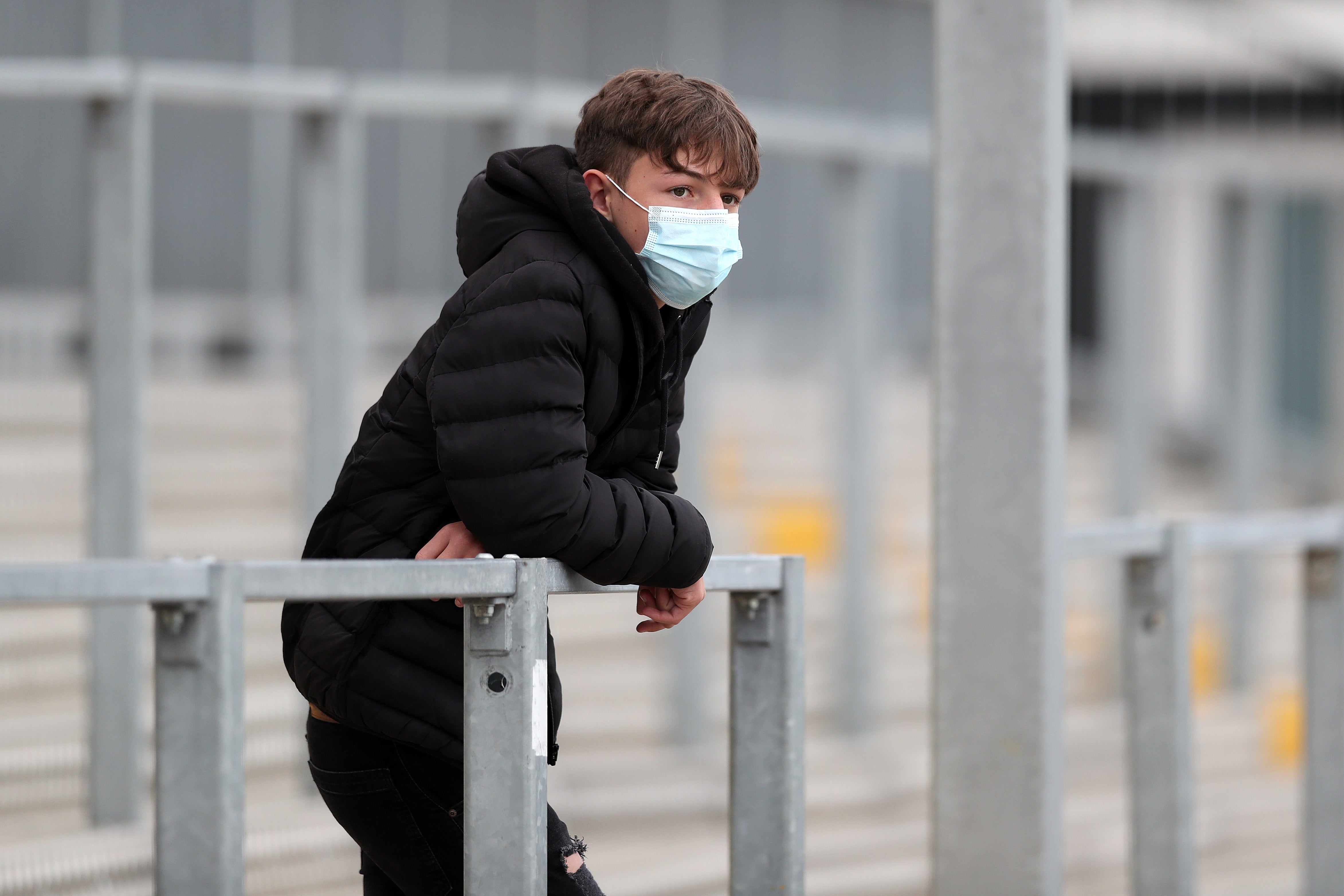34,000 children in UK suffering from long Covid, ONS survey suggests
Overall, a total of 945,000 people are thought to be suffering from the syndrome in the UK

Your support helps us to tell the story
From reproductive rights to climate change to Big Tech, The Independent is on the ground when the story is developing. Whether it's investigating the financials of Elon Musk's pro-Trump PAC or producing our latest documentary, 'The A Word', which shines a light on the American women fighting for reproductive rights, we know how important it is to parse out the facts from the messaging.
At such a critical moment in US history, we need reporters on the ground. Your donation allows us to keep sending journalists to speak to both sides of the story.
The Independent is trusted by Americans across the entire political spectrum. And unlike many other quality news outlets, we choose not to lock Americans out of our reporting and analysis with paywalls. We believe quality journalism should be available to everyone, paid for by those who can afford it.
Your support makes all the difference.An estimated 34,000 children in the UK are suffering from long Covid, new research shows.
This includes 11,000 two- to 11-year-olds and 23,000 12- to 16-year-olds, according to a survey conducted by the Office for National Statistics (ONS).
Symptoms, which include fatigue and shortness of breath, were self-reported by participants as persisting for more than four weeks after infection with Covid-19.
The findings come after a separate report, published earlier in the week, said that children were unlikely to suffer from long Covid.
Dr Elaine Maxwell, a scientific adviser at the National Institute for Health Research (NIHR), who was not involved in either study, said the ONS estimate suggests the condition is “hardly rare”.
However, she warned that “we need to keep looking at a range of different studies to make sense of what is happening, and it is far too soon to make bold statements about the prevalence and prognosis of long Covid in adults or children”.
The latest ONS estimates also suggest that 380,000 people in the UK have experienced long Covid for at least a year. The figure is based on responses collected from people in private households in the four weeks to 4 July, extrapolated to the rest of the population.
Overall, a total of 945,000 people are thought to be suffering from the syndrome – down from 962,000 reported in last month’s survey.
Long Covid was estimated to be adversely affecting the daily activities of 611,000 people, with 182,000 reporting that their ability to undertake normal activities had been “limited a lot”, the ONS said.
Fatigue was the most common symptom reported as part of an individual’s experience of long Covid (528,000 people), followed by shortness of breath (388,000), muscle aches (296,000) and loss of smell (285,000).
Prevalence of self-reported long Covid was greatest among people aged 35 to 69, with higher numbers among females as well as those living in the most deprived areas, those working in health or social care, and those with another activity-limiting health condition or disability, the ONS found.
There is no universally agreed definition of long Covid, but it covers a broad range of symptoms such as fatigue, muscle pain and difficulty concentrating.
Separate research from King’s College London (KCL) suggested that children who catch Covid-19 and develop symptoms typically recover within a week.
The study, published in The Lancet Child & Adolescent Health journal, looked at 1,734 children who tested positive for Covid-19 close to the onset of symptoms.
It found that the average illness lasted six days, with most children recovering from their symptoms within four weeks.
A minority – 77 children, or 4.4 per cent – continued to experience illness after a month, while fewer than 2 per cent were still struggling with symptoms beyond eight weeks.
Recent studies have varied considerably in their assessment of the scale and severity of long Covid among children, pointing to the complexities and limited understanding of the syndrome.
Join our commenting forum
Join thought-provoking conversations, follow other Independent readers and see their replies
Comments